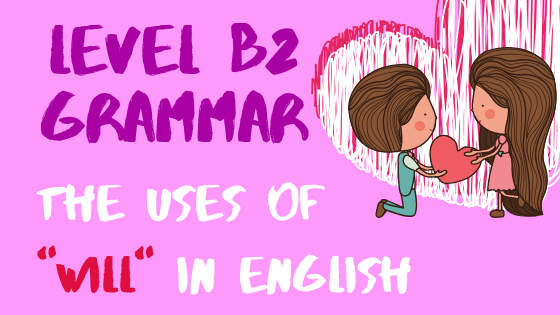In this blog, we will be looking at when and how to use the present perfect tense. We will start by finding out what the present perfect tense is and will then go on to look at when and how to use the present perfect tense in English. We will also include some songs with examples of the present perfect simple in the lyrics.
As a supplier of professional German to English translations and edited texts, I spend a lot of my time reading and correcting English texts. Sometimes these texts have been written by native speakers and sometimes by non-native speakers. And there is one sure-fire way to work out whether a text has been written by a non-native speaker – the use of tenses. Tenses are hard to master in English and they are a common source of error; both for those learning English and for those who have a good grasp of the language already.
What is the present perfect tense in English?
As mentioned above, the present perfect tense is one of the four present tenses in the English language. Here are the four English present tenses in all their glory:
- The simple present: I love chocolate.
- The present continuous: I am writing about chocolate.
- The present perfect: I have eaten chocolate.
- The present perfect continuous: I have been eating chocolate.
How to form the present perfect tense
As you can see from these examples, the present perfect tense is made up of two parts: the present tense of the verb “to have” + the past participle of the main verb (e.g. to eat).
As a basic rule, whenever you see the present tense of “to have” and the past participle of another verb, you are looking at the present perfect tense.
You can create a negative sentence by adding “not” to the sentence, for example: I haven’t eaten lunch yet.
The present perfect tense can also be used in the interrogative form, i.e. to ask questions: Has she seen the news?
And in the negative interrogative: Hasn’t he finished work yet?
When and how do you use the present perfect tense in English?
Now we know how to construct the present perfect tense, let us turn our attention to the question: when do we use the present perfect tense?
Well, the present perfect tense is a way of indicating a link between the present and the past. It is used to talk about experiences in a way that does not refer to when they happened. And it describes something that has happened in the past but that is still relevant.
There are five main uses of the present perfect tense:
1) Actions that started in the past and have continued into the present
2) Referring to a time period that has not yet finished
3) Actions repeated between the past and now
4) Actions completed very recently (where the sentence includes “just”)
5) When the precise time of the action is unimportant or unknown
Let’s look at each of these in turn with some examples:
Talking about actions that started in the past and have continued into the present

Common examples for this use of the present perfect tense in English include:
I have lived in York for several years now.
I have lost my passport.
I have had this coat for years.
I have already eaten.
Referring to a time period that has not yet finished

With common examples including:
It has rained a lot this month.
I have run a lot this week.
I haven’t been outside today.
Talking about actions that have been repeated between the past and the present

Such as:
We have been there dozens of times.
I have ridden that roller coaster 10 times.
She has seen them three times before.
Talking about actions that have only just been completed

This version of the present perfect tense includes the word “just” or “only just” to indicate that the action has been completed very recently. So, for example:
We have only just got back.
Sorry, I have just eaten.
Has he just gone?
They have only just seen the news.
Do you want to boost your English skills?
Sign up for lessons with a trained native teacher here:
Do you want to boost your English skills?
Sign up for lessons with a trained native teacher here:
When the precise time of the action is unimportant or unknown

Another common use of the present perfect tense is to refer to an action that happened at an unspecified time:
Have you seen The Bodyguard?
She has moved out.
I have lost my gloves.
The police haven’t caught the thief
So, there you have it. The present perfect tense is a very common tense in English. Now you know what it is, you will probably start noticing it all the time!
It is a great way of talking about things that have happened in the past but that are still relevant, and it is extremely easy to construct. Simply take the present tense of the verb “to have” and add it to the past participle of the main verb in the sentence.
Here is one final list of examples, showing the various conjugations of the verb “to have”:
I have cooked a curry.
Have you eaten already?
She has gone out.
We have lost our car keys.
Have you worked as an aupair for long?
They have found all the Easter eggs.
Songs to help you learn when and how to use the Present Perfect in English
If you want to practice your listening skills, these songs have all got examples of the present perfect simple tense in the lyrics:
- “Standing on the Shore” by Empire of the Sun
- “Have You Seen Her” by the Chi-Lites
- “Have You Ever Seen the Rain” by Creedence Clearwater Revival
- “(I’ve Had) The Time of My Life” by Bill Medley and Jennifer Warnes
- “Have You Ever Really Loved a Woman” by Bryan Adams
- “Have You Ever” by Brandy
- “The Impression That I Get” by The Mighty Mighty Bosstones
- “I’ve Just Seen a Face” by The Beatles
- “All These Things That I’ve Done” by The Killers
- “Lonesome Loser” by Little River Band

This article was written by Lucy Pembayun who is a German to English translator with over twelve years of professional translation experience and the founder of LEaF Translations.
She graduated with an MA(Hons) in German from Edinburgh University before being awarded a DAAD scholarship to study for a post-graduate Masters in Germany. She has lived in Bamberg, Fulda and Berlin, and now resides in York, UK, with her husband and two young children.
Follow us on Social Media




